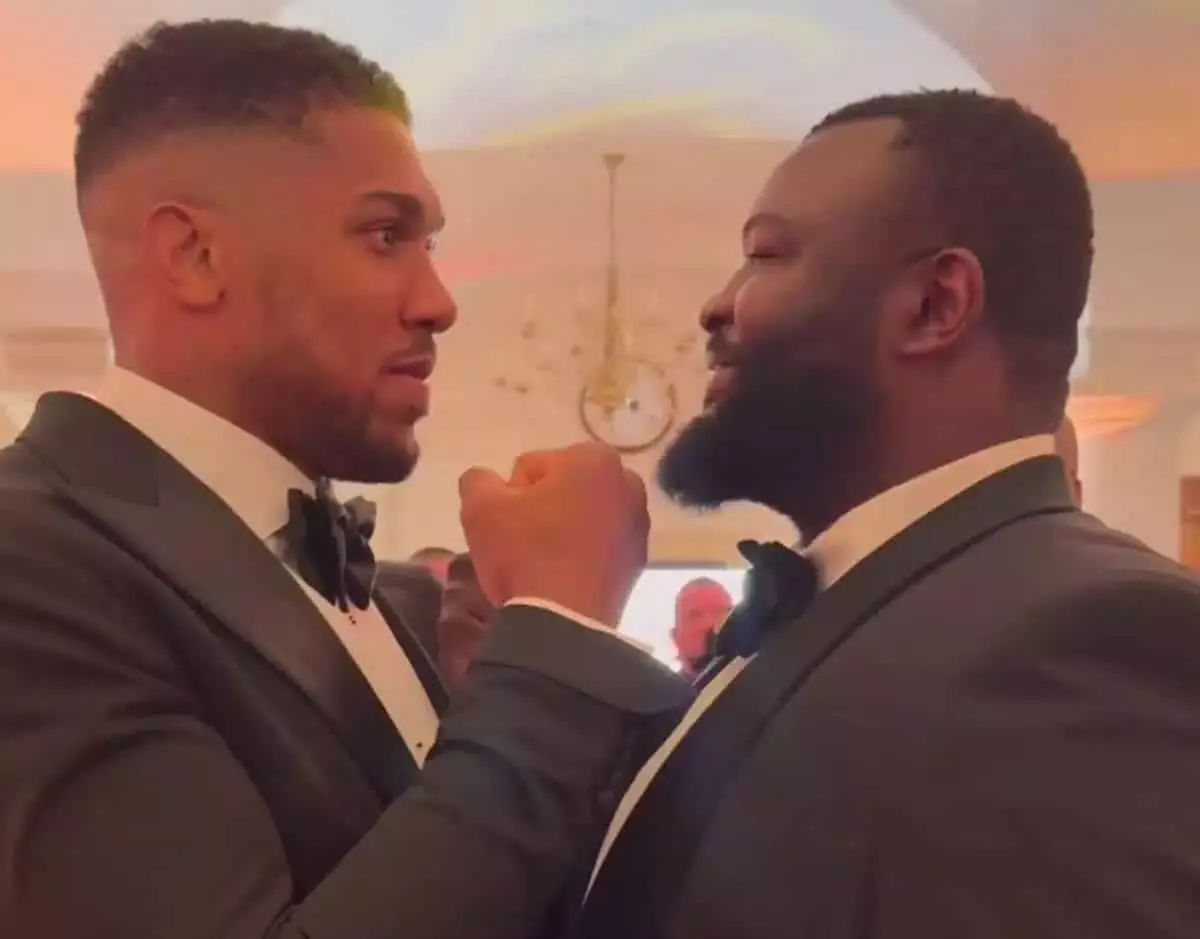In the realm of professional boxing, the interplay between fighters’ reputations, strategic matchmaking, and public interest creates a complex web that often obscures true intentions and aspirations. The latest controversy involving Martin Bakole’s pursuit of a fight with Anthony Joshua and Eddie Hearn’s assessment of the situation adds yet another layer to this intricate narrative. At the heart of this discussion is the question: are fighters merely leveraging the names of established champions for personal gain, or do they genuinely seek competitive matchups?
Martin Bakole, a rising heavyweight contender with a record of 21 wins, 1 loss, and 16 knockouts, is overtly vocal about his desire to face Anthony Joshua in what he envisions as a pivotal clash reminiscent of the historic Ali-Foreman bout in Africa. Bakole’s readiness to take on Joshua is notable; it indicates a fighter at the peak of his confidence, eager to test his mettle against a former champion. Hearn, however, interprets Bakole’s actions through a different lens. He suggests that Bakole’s overtures are more about gaining ‘clout’ rather than a sincere competitive desire. This differentiation raises essential questions about authenticity and motive in professional sports.
Eddie Hearn, Joshua’s promoter, has been unequivocal in his portrayal of Bakole as someone who is “riding the coattails” of Joshua’s illustrious career. While Hearn acknowledges Bakole’s talent, he seems to imply that the challenger’s intent is more about gaining visibility in the highly competitive heavyweight landscape rather than a true challenge. Hearn’s skepticism serves a dual purpose: it protects Joshua’s brand while simultaneously showcasing Bakole’s strategic maneuvering in a sport where timing and public perception are crucial.
Interestingly, Hearn does not completely dismiss the possibility of a fight between the two heavyweights in the future. His statements reflect a cautious openness that alludes to the unpredictable nature of boxing. However, the timing and likelihood hinge largely on Joshua’s performances. With Joshua having suffered a series of setbacks against top-tier opponents, the prospects of him stepping into the ring with a fighter like Bakole might be dim, particularly if he opts for less risky contests to rebuild his brand.
Hearn’s comments shed light on a crucial aspect of Joshua’s current trajectory in the sport. After his recent defeats, there is a palpable shift in Joshua’s approach, where fighting lesser-known fighters for favorable financial returns seems strategically advantageous. This is a stark contrast to Bakole’s ambitions, who is not just positioned for a payday but also seeks to enter the ring with a legitimate chance of victory. The inherent risk of fighting Bakole lies in Joshua’s declining reputation, particularly if he were to lose again, which could further derail his career.
Hearn’s recollections of sparring sessions between Bakole and Joshua also add a personal touch to his analysis. He reveals memories of Bakole landing a significant shot on Joshua during their training, though he downplays its significance. This anecdote not only humanizes the champions but also emphasizes the unpredictable dynamics present in sparring, which can sometimes present a distorted view of a fighter’s actual capabilities.
As the narrative unfolds, the boxing community and fans alike are caught in a swirl of opinions regarding the authenticity of Bakole’s intentions. On the one hand, one might argue that he is leveraging Joshua’s name as a springboard to larger opportunities, but on the other hand, there is a genuine competitive fire that cannot be overlooked. The idea that fighters must balance their career ambitions with the public’s perception raises ethical questions about how one navigates the fight landscape.
Ultimately, the clash of clout and competitive spirit can provoke a myriad of responses from fans and analysts alike. Whether Bakole is primarily seeking clout or genuinely wishes for a fight with Joshua, the future will reveal the truth. Eddie Hearn’s role as both promoter and commentator complicates the dialogue, as he aims to maintain Joshua’s status while analyzing the motivations of up-and-coming boxers.
While the boxing world is rife with bravado and promotional tactics, the core of the discussion between Bakole, Hearn, and Joshua underscores larger thematic concerns about ambition, resilience, and the true spirit of competition. Only time will tell how these elements converge in the squared circle.


Leave a Reply